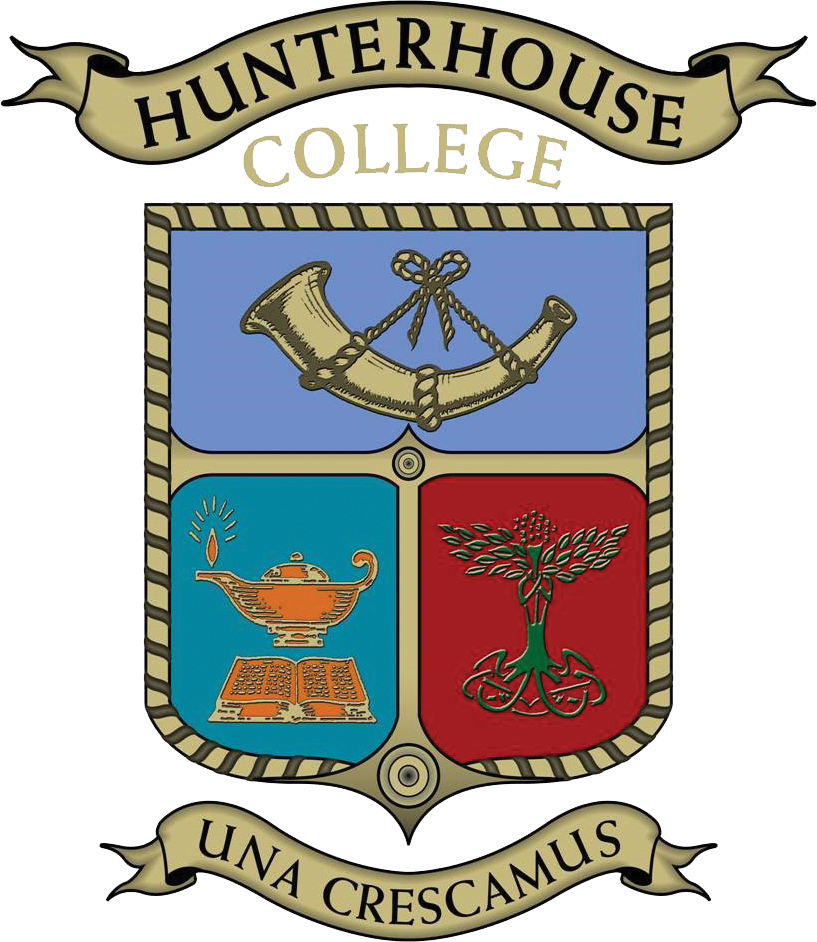Physics
Vision for Physics at Hunterhouse College
- To stimulate curiosity, interest and enjoyment in Physics
- To acquire a systematic body of scientific knowledge and to develop an understanding of Physics including its power and its limitations
- To enable students to acquire sufficient understanding and knowledge to become confident citizens in a technological world, able to take or develop an informed interest in matters of scientific importance
- To develop skills and abilities which are relevant to the study and practice of Science, are useful in everyday life, and encourage safe practice and effective communication
- To develop an understanding of the nature of scientific ideas and activity and the basis for scientific claims
- To promote an awareness of the technological and environmental applications of Physics and of their economic, ethical and social implications
Just what is Physics?
To sum it all up in the easiest of terms, physics is the study of matter and energy, and how they relate to one another.
Physics can also be described as the science dealing with physical quantities.
An appreciation of the world we live in and all its elements that can be observed by the five physical senses could be considered as physics in its most general sense.
People today may still continue to ask what is physics especially with unrelenting advances and discoveries in its various fields of study, such as astronomy, electromagnetism, geophysics, meteorology, optics, relativity, and a whole lot more. The answer is simple – physics is all these.
Curriculum
Key Stage 3 (Years 8-10)
Physics is studied in Years 8 and 9 as part of general Science studies (3x 1 hour periods per week).
In Year 10 Physics is a stand alone subject (1 hour lesson per week).
Key Stage 4 (Years 11-12)
Students have the choice of either Double Award Science or Single Award Science. Physics is a component of both courses and is taught within the CCEA specifications.
In the Double Award Science option for Physics
Topics for study in Year 11 include: Motion, Forces, Density and Kinetic Theory, Energy and Atomic and Nuclear Physics.
Topics for study in Year 12 include: Waves, Light, Electricity, and Space Physics.
Additionally, students have to complete a series of 6 prescribed Physics experiments. From these experiments they complete both a practical and theory examination paper.
In the Single Award Science option for Physics
Topics for study include: Electricity, Energy, Waves, Forces and Earth in Space
Additionally, students have to complete a series of prescribed Physics experiments.
Key Stage 5 (Years 13-14)
AS and A2 Physics is taught following the CCEA specification.
Physics AS is divided into 3 modules.
Module 1: Forces, Energy and Electricity
Module 2: Waves, Photons and Astronomy
Module 3: Practical Techniques
Physics A2 is divided into 3 modules which follow on from AS Physics.
Module 4: Deformation of Solids, Thermal Physics, Circular Motion, Oscillations, Atomic and Nuclear Physics
Module 5: Fields and their Applications
Module 6: Practical Techniques
Accommodation
The department consists of two modern, well-equipped laboratories and a prep room. Each room has an interactive white board.
Careers
There are many career opportunities open after studying Physics. These include:
- Aeronautical Engineer
- Architect
- Astronomer
- Audio Engineer
- Civil Engineer
- Computer Scientist
- Electrical Engineer
- Environmental Scientist
- Geologist
- Mechanical Engineer
- Radiographer
- Teacher
More information can be found at the following links:
